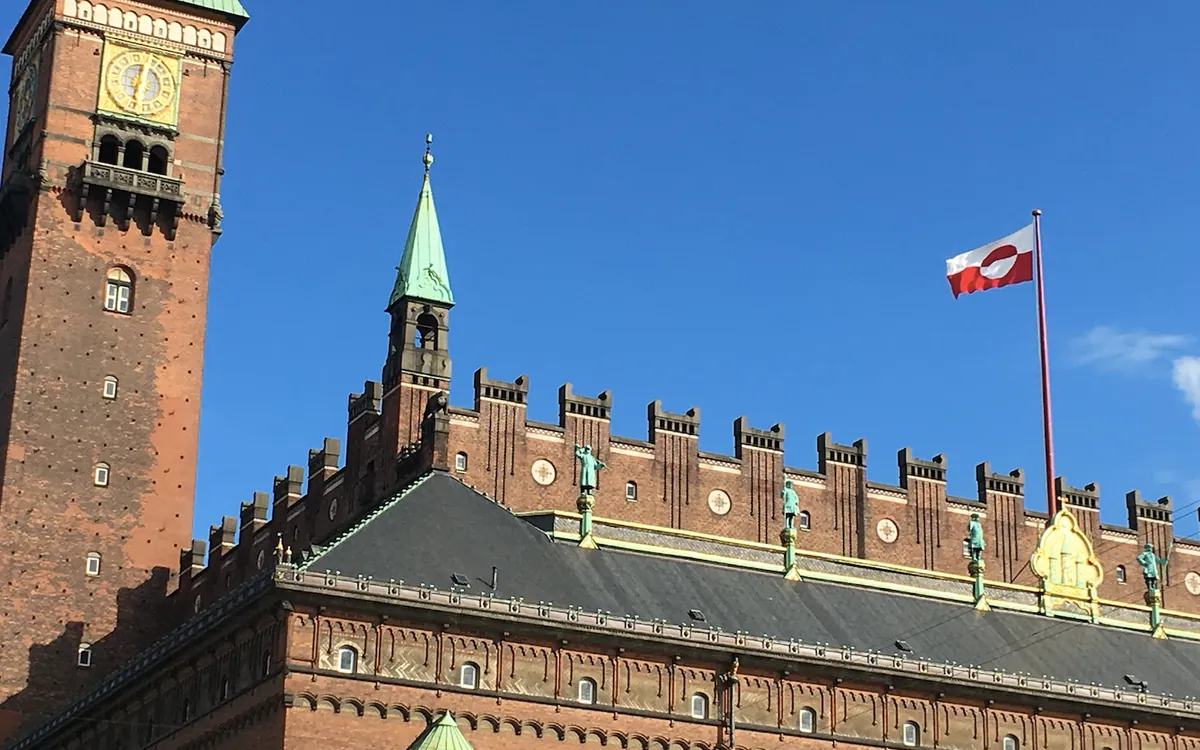In a recent session of the Danish Parliament, a significant incident occurred highlighting the ongoing tensions between Denmark and Greenland. Aki-Matilda Hoegh-Dam, a lawmaker representing Greenland, was asked to leave the podium when she insisted on speaking only in Greenlandic, the Inuit language of the world's largest island that is not a continent.
This event, which took place on October 3, 2024, has reignited debates about linguistic rights and the complex relationship within the Danish Realm. Greenland, a vast territory with a population of approximately 56,000, has been part of the Kingdom of Denmark since 1814, but its status has evolved significantly over time.
The incident unfolded during a traditional debate day where political parties present their positions. Hoegh-Dam, from the social democratic Siumut party, attempted to deliver her speech in Kalaallisut (West Greenlandic), the official language of Greenland. Despite providing a Danish translation to assembly members beforehand, Parliament Speaker Søren Gade asked her to step down, stating that debates cannot proceed if speeches are not delivered in Danish.
This linguistic standoff brings attention to the broader issue of representation for Greenland and the Faroe Islands in the Danish Folketing. Both territories, which are semi-independent parts of the Danish Realm, hold two seats each in the Copenhagen assembly. The current rules allow lawmakers from these regions to speak in their local languages only if they immediately provide a Danish translation themselves.
Greenland's journey within the Danish Realm has been marked by significant milestones. In 1953, it transitioned from a colony to a province of Denmark. Home rule was granted in 1979, and in 2009, Greenland achieved self-governing status. However, Denmark still retains control over justice, foreign, and defense affairs.
The relationship between Greenland and Denmark has been strained by historical events, including revelations of misconduct by Danish authorities in Greenland during the 20th century. This has fueled a growing independence movement on the island over the past two decades.
Despite its push for autonomy, Greenland's economy remains heavily dependent on Denmark. The island's main export is fish, and it relies on substantial annual financial support from Denmark. For 2024, this support is budgeted at 4 billion kroner (nearly $600 million).
Greenland's unique characteristics contribute to its complex political situation. About 80% of its surface is covered by ice, making it home to the second-largest ice body in the world after Antarctica. The island experiences the phenomenon of midnight sun, where the sun doesn't set for weeks during summer in some parts.
Climate change is having a significant impact on Greenland, causing rapid ice melt and contributing to rising global sea levels. This environmental shift could potentially affect the island's future economic and political landscape.
As debates continue over linguistic rights and representation, it's worth noting that Greenland has its own parliament called Inatsisartut and maintains separate institutions in various areas, including a national football team distinct from Denmark's.
The incident in the Danish Parliament serves as a reminder of the ongoing challenges in balancing cultural identity, linguistic rights, and political representation within the framework of the Danish Realm. As Greenland continues to assert its unique identity, the dialogue between Copenhagen and Nuuk remains crucial for navigating their complex relationship.
"I had no intention of translating my speech into Danish."
This linguistic debate underscores the broader discussions about Greenland's future, its rich cultural heritage, and its evolving relationship with Denmark. As the island faces both challenges and opportunities, from climate change to potential mineral resource development, the question of how Greenland's voice is heard on the international stage remains more relevant than ever.
